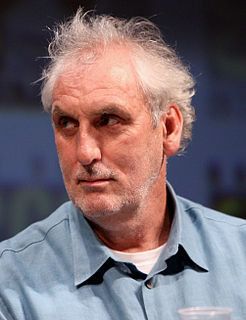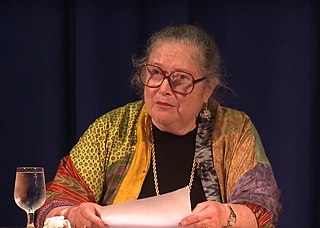A Quote by Gloria E. Anzaldúa
In trying to become 'objective,' Western culture made 'objects' of things and people when it distanced itself from them, thereby losing 'touch' with them.
Related Quotes
I have always directed my attempts at the figurative representation of objects by way of summary and not very descriptive brushstrokes, diverging greatly from the real objective measurements of things, and this has led many people to talk about childish drawing.. ..this position of seeing them (the objects) without looking at them too much, without focussing more attention on them than any ordinary man would in normal everyday life..
There was a culture that came out of the self-esteem movement which was don't anybody keep track of the goals. The kids keep track, but nobody keep track of the goals because we don't want the kids to have the experience of losing. And in depriving them losing, thinking it scarred them to lose, we made losing so taboo, so unspeakable, that we instead made losing more scary to kids, not less scary.
Wars are fought to gain a certain objective. War itself is not the objective; victory is not the objective; you fight to remove the obstruction that comes in the way of your objective. If you let victory become the end in itself then you've gone astray and forgotten what you were originally fighting about.
We’re surrounded by anonymous, poorly made objects. It’s tempting to think it’s because the people who use them don’t care - just like the people who make them. But what we’ve shown is that people do care. It’s not just about aesthetics. They care about things that are thoughtfully conceived and well made. We make and sell a very, very large number of (hopefully) beautiful, well-made things. our success is a victory for purity, integrity - for giving a damn.
I think the real test of psychedelics is what you do with them when you're not on them, what kind of culture you build, what kind of art, what kind of technologies... What's lacking in the Western mind is the sense of connectivity and relatedness to the rest of life, the atmosphere, the ecosystem, the past, our children's future. If we were feeling those things we would not be practicing culture as we are.
Being a sculptor who uses found objects, all the objects I use in my work have been designed by other people. So I'm tweaking them in some way by squashing them or throwing them off cliffs! Then I formalise my damage by suspending them or arranging them in some kind of way. So I'm using other people's design in a way, so I'm an 'un-maker.'
The cool thing about making a Western is that people want to be in them. You rarely get the opportunity. With horror movies you are always trying to convince them. People in horror are always worried it's going to be this schlocky thing, and you're always trying to convince them that it's not. With Westerns, people immediately react with, "Oh, I've always wanted to do one."
There are moments when I cannot bear this unremitting consciousness. It knows only itself. Awake, I am in a continuum with my dreams. I feel my typewriters, my table, my chair to have that assurance of a solid world, where things take up space, where is not the endless emptiness of insubstantial thought that leads to nowhere but itself. My memories pale as I prevail upon them again and again. They become more and more ghostly. I fear nothing so much as losing them altogether and having only my blank endless mind to live in.
Calling something exotic emphasizes its distance from the reader. We don't refer to things as exotic if we think of them as ordinary. We call something exotic if it's so different that we see no way to emulate it or understand how it came to be. We call someone exotic if we aren't especially interested in viewing them as people - just as objects representing their culture.





































